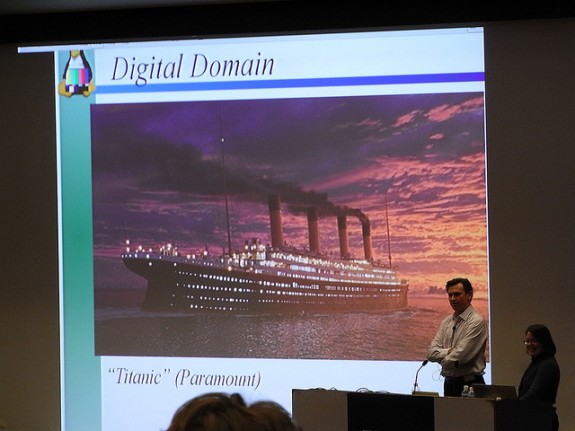
Digital Domain, a movie company, received $20 million from the state in the vain of job creation, but it filed for bankruptcy this week, shedding hundreds of jobs in the state. (Photo by Isriya Paireepairit.)
By Ashley Lopez
Florida Center for Investigative Reporting
Digital Domain, a movie company based in Port St. Lucie, filed for bankruptcy this week. This means that Florida could be out $20 million.
The movie company was one of many that received millions of dollars in the past several years from the state’s economic incentives program. The program is meant to create jobs by luring companies to open shop in the state, but determining whether the economic incentives work has been difficult because the program is infamously opaque.
I have mentioned this before. In the past several years, starting before Gov. Rick Scott’s administration, the state has spent millions on handouts to businesses in the hopes this would generate jobs in the state.
Scott has made this incentives program, along with massive tax breaks, the bedrock of his job creation policies. What’s more, he has doled out more checks to businesses than any other governor before him.
However, there is no transparency in the program, which has long been a gripe among government watchdogs in the state.
Dan Krassner, of Integrity Florida, wrote in an op-ed this week warning yet again that the program is prone to corruption:
Enterprise Florida, the state’s official economic development organization, claims it has been “creating jobs and economic wealth for Floridians.” However, Enterprise Florida has doled out nearly $2 billion of taxpayer money to corporations since 1995 and has yet to deliver the 250,000 new jobs it promised.
The Tampa Bay Times editorial “Corporate handouts need accountability” on April 29 pointed out that “over the past 15 years, only one-third of the 1,500 tax incentive contracts actually resulted in employing the number of people promised.”
To make matters worse, Enterprise Florida has engaged in secrecy, by not posting meeting agendas online, and self-dealing, including giving contracts to its private funders. Many of the 28 corporations, which pay on average $50,000 for a seat on the Enterprise Florida board, are getting vendor contracts and taxpayer-funded incentives in return for their investments.
In just the last fiscal year, $22,449,500 in taxpayer-funded incentive awards went to Enterprise Florida board member companies, including Publix, Darden, Embraer, Harris and Lockheed Martin. Those companies promised a total of 1,494 new jobs with no public timeline of when they will be here.
A few days after this appeared in print, news broke that a company that received state incentives went belly up and fired hundreds of high-skilled workers in Florida.
The Miami Herald/Tampa Bay Times reported that Digital Domain, which is known for its award-winning work in the ’90s hit movie Titanic, would be leaving some serious damage in its wake:
The company, Digital Domain Media Group Inc., closed its Florida operations last week and on Tuesday filed for Chapter 11 bankruptcy, laying off 300-or-so Florida employees and likely leaving taxpayers without a return on its $20 million state investment. Local governments stand to lose around an additional $110 million.
Florida State University is another possible victim in all this. The university’s prestigious film school spent $2 million in a partnership with the company. Many students entered the FSU program under the expectation that they would later receive employment at Digital Domain.
Earlier this year, during the Legislative session, state lawmakers promised progressives that there would be more transparency around the state’s economic incentives program.
Florida Senate President Mike Haridopolos said on the floor of the Florida Senate that he would commit to “a formal study reviewing the effectiveness of economy development incentives, tax credits, exemptions, and subsidies,” in the state’s economic incentives bill.
This followed a report last year from the Florida Center for Fiscal Policy and Economic Policy that called on legislators to evaluate whether these economic incentives were actually creating jobs. The public policy group argued that the state “provides huge benefits to selected companies each year, many of which receive little or no examination of their value to Florida’s economy.” At least $4 billion in both tax breaks and handouts have been given each year to businesses in Florida in the past couple of years, the group reported.
Scott’s office told the Herald/Times that the governor ordered an investigation this week into “how the company received state funding and if similar incentive deals could or should be prevented going forward.”
